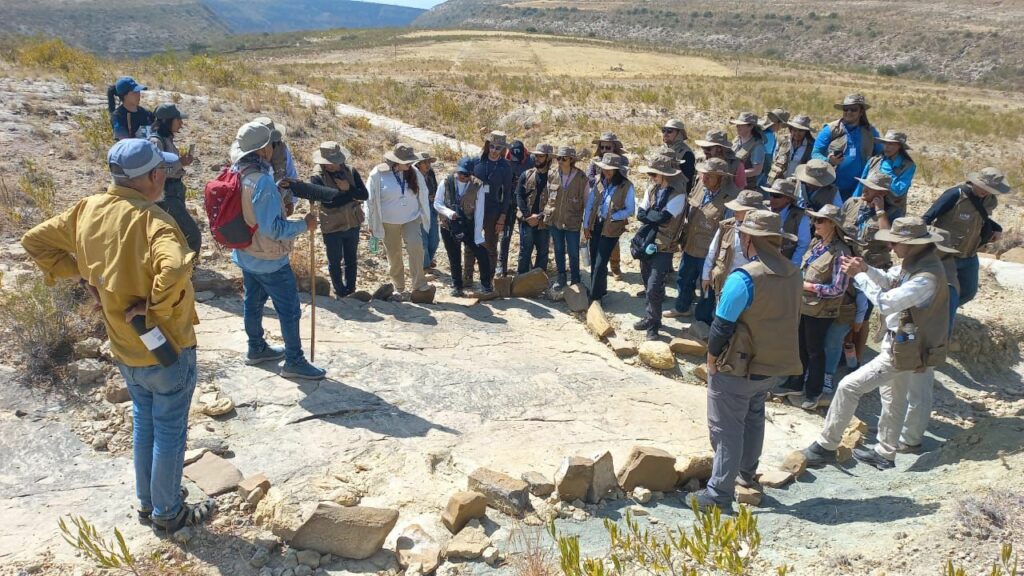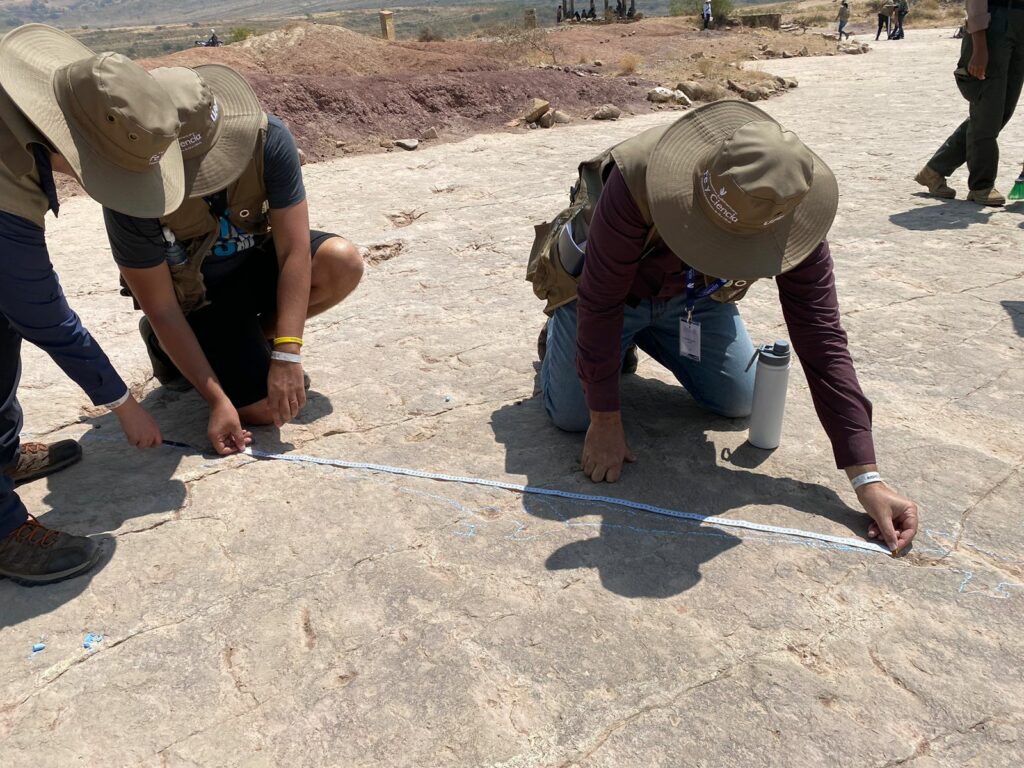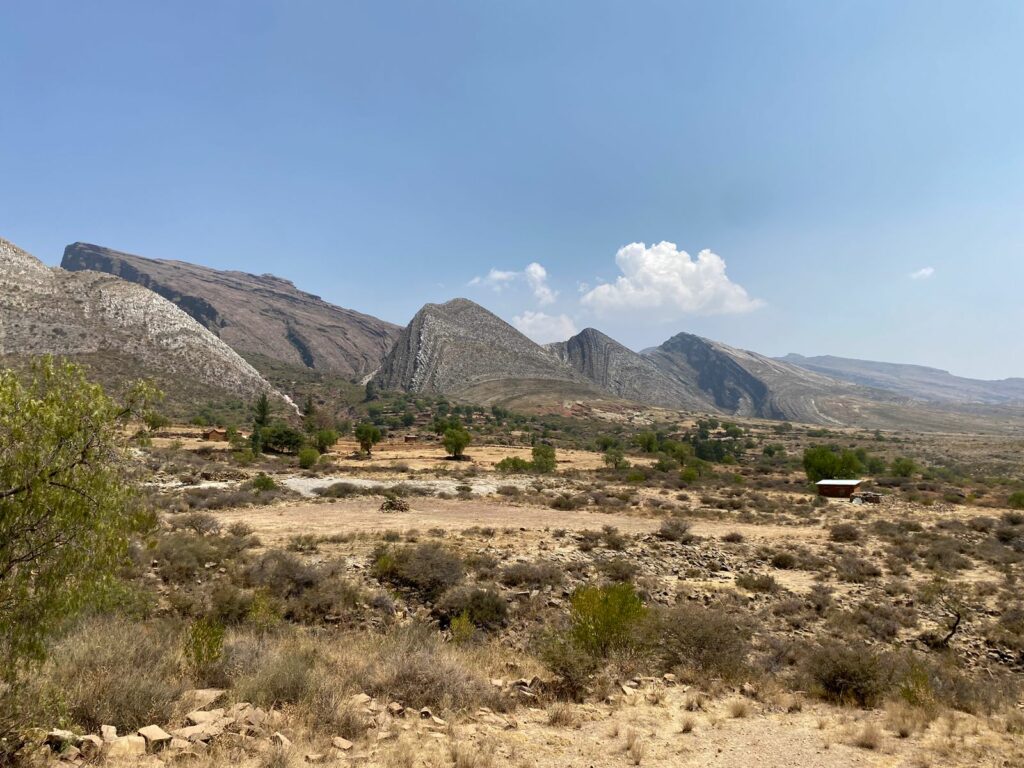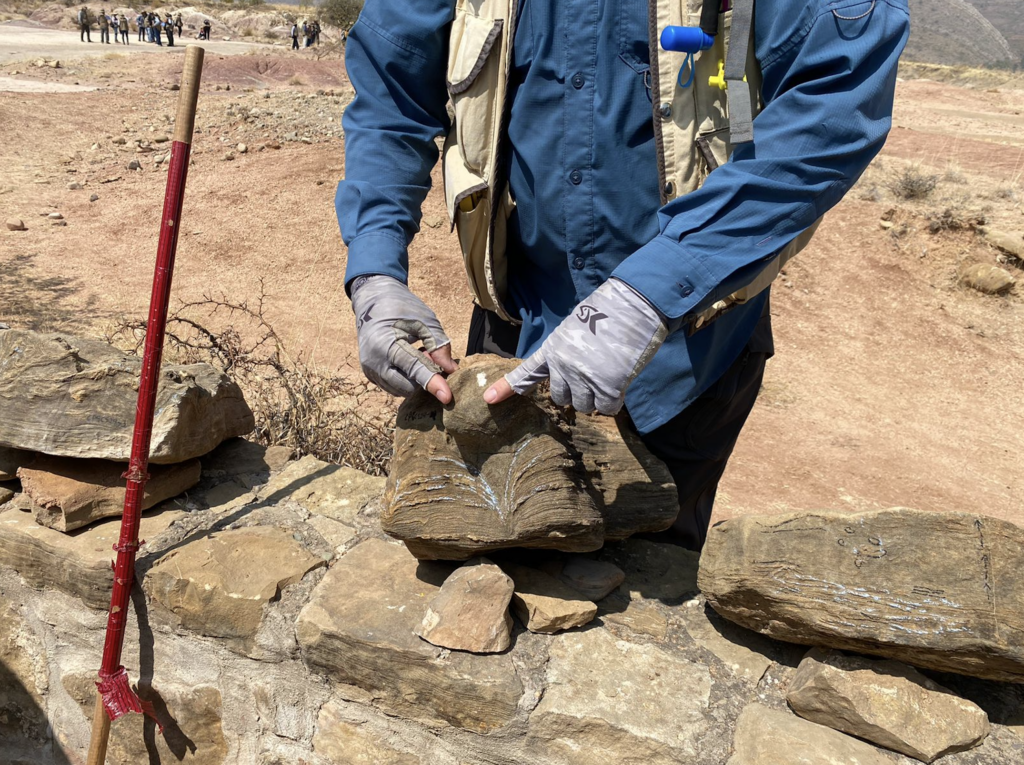
Participants visited paleontological sites in the mountains of Bolivia, where researchers and visitors can see dinosaur and bird fossil footprints. [Photo: Michelson Borges]
September 30, 2024 | Michelson Borges, South American Division, and Adventist Review
In the mountains of Bolivia, scientists and researchers from around the world gathered for an event that united science and faith in a unique way. From September 4 to 7, the city of Cochabamba and Torotoro National Park hosted the 5th South American Meeting of Faith and Science.
Organized by the Seventh-day Adventist Church’s South American Division (SAD) and Bolivia Adventist University, the event brought together more than 70 experts from eight countries. Speakers delivered lectures, offered workshops, and led an expedition to study the largest record of dinosaur fossil footprints on the planet. More than a scientific event, it was an opportunity to reflect on the harmony between biblical faith and scientific research, organizers said.
Francislê Neri de Souza, director of the SAD branch of the Geoscience Research Institute (GRI), said the event underpins the dialogue between faith and science within a creationist perspective. “Meetings like this are essential to strengthen the participants’ convictions and provide scientific tools to explain the biblical view on origins,” Souza said.

Researchers study and measure dinosaur fossil tracks. [Photo: Maura Brandão]
GRI in South America promotes geological expeditions to important sites such as the Galápagos Islands (Ecuador); Chapada do Araripe, in Brazil; and Ocucaje, in Peru, reinforcing the integration between science and faith in the study of origins.
Practical Results
A visit to Torotoro National Park was the main activity at the meeting. More than 20,000 dinosaur footprints from the Triassic, Jurassic, and Cretaceous periods have been documented. Led by Raúl Esperante from the GRI world headquarters in Loma Linda, California, United States, researchers analyzed fossil footprints that suggest dinosaur interaction with flooded environments. Esperante’s research projects carried out since 2019 have already resulted in several peer-reviewed scientific papers and have triggered the interest of Bolivia’s federal government to promote tourism in the area.

The confluence of the Nasca and South American tectonic plates created the region’s mountains, scholars explained. [Photo: Michelson Borges]
The meeting also marked the launch of the book
Contributions to the Teaching of Creationism, with 20 chapters written by 28 authors. The volume, especially targeted at Adventist teachers, offers strategies to integrate creationist teaching with scientific knowledge.GRI world director Ronald Nalin highlighted the importance of expanding the dialogue between science and faith in Adventist institutions. For SAD education director Antônio Marcos Alves, creationism is the “cornerstone” of the denomination and should be an essential part of the teaching across Adventist schools.
Focus on New Generations
Adolfo Suárez, president of the Latin American Adventist Theological Seminary (SALT) and director of the SPD’s Spirit of Prophecy department, pointed out that events like this allow an alignment of research with Adventist identity. “We should support the production of more multimedia content, such as documentaries, to make creationism more accessible to new generations,” Suárez said.

Analysis of sedimentary strata during the event. [Photo: Michelson Borges]
“Participating in the 5th Faith and Science Meeting was an unparalleled experience,” Maura Brandão, one of the event speakers, said. “Without a doubt, the highlight of the event … was the field activity in Torotoro National Park,” Brandão added. “Learning in practice how dinosaur footprint investigations are carried out was very enriching, edifying, and further reinforced important principles of the creationist worldview.”The next South American Meeting of Faith and Science will be held in Chile in 2026, focusing on astronomy and its implications for the study of origins.
The original version of this story was posted on the South American Division Portuguese-language news site.



